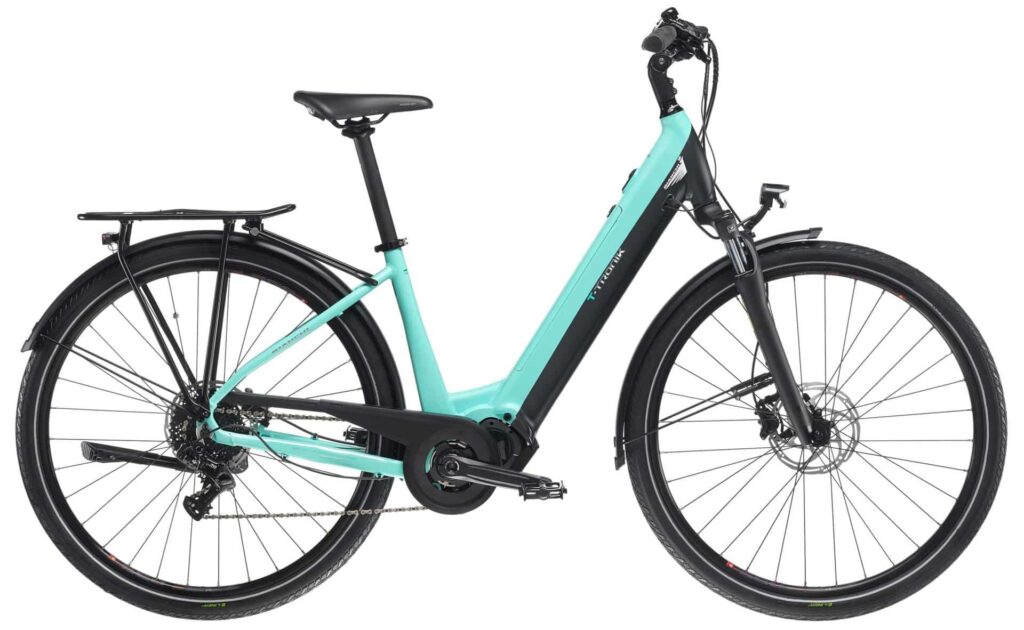The T-Tronik C From Bianchi Might Replace Your Car (in Other Countries)
As urban centers around the globe grapple with increasing traffic congestion and environmental concerns, innovative transportation solutions are drawing significant attention. Enter the T-Tronik C, a cutting-edge electric bicycle from renowned Italian manufacturer Bianchi. With its sleek design and advanced technology, the T-Tronik C promises to offer a compelling alternative to traditional car travel-especially in regions where cycling infrastructure is rapidly evolving. This article explores the features of the T-Tronik C, its potential to revolutionize urban mobility, and the implications for cities looking to reduce their carbon footprint while enhancing mobility options for residents. As cities strive for sustainability, could the T-Tronik C be the two-wheeled solution that reshapes urban transit in the years to come?
The Rise of the T-Tronik C: A Game-Changer in Urban Mobility
The T-Tronik C has emerged as a revolutionary alternative to traditional cars, providing a sustainable and efficient solution for urban mobility. With an eco-friendly design and cutting-edge technology, this e-bike is tailored for city dwellers looking to navigate congested streets while reducing their carbon footprint. The lightweight frame and powerful battery system allow for speeds and distances that challenge even the convenience of a car, making it an enticing option for many commuters.
As cities around the globe grapple with increasing traffic and pollution levels, the T-Tronik C is poised to transform urban transport dynamics. Key features that differentiate it from standard bicycles and cars include:
- Smart Connectivity: Integrates seamlessly with mobile apps for route planning and vehicle diagnostics.
- Environmental Impact: Emits zero emissions, contributing to cleaner air in metropolitan areas.
- Cost-Effectiveness: Significantly lower operating costs compared to traditional vehicles.
As countries invest heavily in cycling infrastructure, the T-Tronik C is positioned not just as a bike but as a symbol of a shift towards more sustainable urban living. It encapsulates a lifestyle that prioritizes health, the environment, and practicality, suggesting that the future of transportation may well be two wheels instead of four.
Sustainable Transportation: How Bianchi’s Electric Bike Challenges Traditional Car Ownership
As urban environments continue to grapple with the challenges of pollution and traffic congestion, Bianchi’s T-Tronik C electric bike emerges as a compelling alternative to traditional car ownership. This innovative technology provides an eco-friendly solution designed to meet the demands of the modern commuter, offering benefits beyond mere transportation. The bike is equipped with a powerful battery and ergonomic design, encouraging longer rides without the fatigue associated with conventional biking. Key features include:
- Powerful electric motor: Seamlessly tackle hills and headwinds.
- Extended battery life: Travel longer distances without the frequent need to recharge.
- Lightweight frame: Enjoy easier handling and a more agile ride.
- Smart connectivity: Integrate with mobile apps for enhanced navigation and tracking.
While many cities are still adapting infrastructure to accommodate electric bicycles, the T-Tronik C represents a shift in consumer behavior towards sustainable urban mobility. Rather than investing in the costs associated with car ownership-insurance, fuel, and parking-individuals can enjoy the operational efficiency and flexibility of an electric bike. In regions where traditional car ownership is declining, Bianchi’s offering may just redefine personal transportation. The reliance on public transportation and car-sharing services is on the rise, making this electric bike not only a viable option but an emerging necessity. Comparative analysis shows:
| Aspect | Traditional Car | Bianchi T-Tronik C |
|---|---|---|
| Initial Cost | High | Moderate |
| Maintenance | High | Low |
| Environmental Impact | High | Low |
| Space Requirement | Significant | Minimal |
Global Market Potential: The Impact of E-Bikes on Commuting Trends and Infrastructure Development
The growing popularity of e-bikes, such as the T-Tronik C from Bianchi, is reshaping commuting paradigms in urban landscapes around the globe. As metropolitan areas grapple with congestion and pollution, the integration of e-bikes into transportation networks offers a sustainable alternative to traditional car travel. Studies indicate that e-bikes not only reduce commuting times but also encourage more individuals to opt for cycling over driving, thereby leading to a noticeable decrease in automotive traffic.
- Environmental Impact: E-bikes produce zero emissions, contributing to cleaner air quality.
- Cost Efficiency: Commuters save on fuel costs and parking fees, making e-bikes financially attractive.
- Infrastructure Development: Cities are investing in bike lanes and charging stations, enhancing safety and accessibility.
This trend is supported by data showing an upsurge in e-bike sales correlating with a decline in car registrations in cities like Amsterdam and Copenhagen. As e-bike adoption increases, local and federal governments are beginning to rethink traditional urban planning, emphasizing mixed-use developments that prioritize pedestrian and cycling infrastructure. The e-bike revolution fosters not only individual transportation efficiency but also contributes to the broader objective of sustainable urban living.
| City | Growth in E-bike Sales (%) | Decrease in Car Usage (%) |
|---|---|---|
| Amsterdam | 35 | 20 |
| Copenhagen | 40 | 15 |
| Boulder | 30 | 10 |
Key Takeaways
As urban mobility continues to evolve, the T-Tronik C from Bianchi emerges as a compelling alternative to traditional car travel, particularly in countries where cycling infrastructure is becoming increasingly robust. With its advanced technology, sustainability focus, and potential to alleviate urban congestion, the T-Tronik C represents a significant shift in how we perceive personal transportation. While it may take time for such a shift to gain traction in car-dependent cultures, the growing interest in e-bikes suggests that the future of commuting may lie less with four wheels and more with two. As nations explore innovative solutions to climate change and urban challenges, the T-Tronik C could very well become a key player in shaping a new era of mobility. As we continue to monitor this trend, it is clear that the conversation surrounding transportation is rapidly changing, and Bianchi’s T-Tronik C is at the forefront of that transformation.










